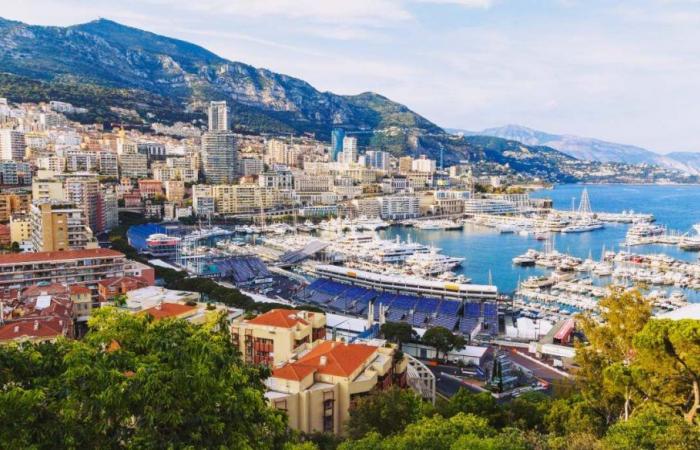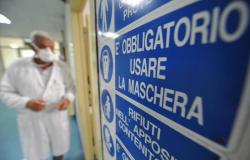The meeting will be held in Singapore on 28 June Fatf – Gafithe Financial Action Task Force responsible for monitoring the tax systems of the world’s nations, reporting whether or not they are at risk of exploitation for money laundering or terrorist financing.
The Fatf draws up two different lists every 6 months, one “black”, the blacklist, which includes countries with compromised financial systems, and a “grey” one greylist, with financial systems that are at risk of compromise. The introduction into these lists does not entail any mandatory change or obligation to reform, but it changes the reputation that a country has towards the members of the group.
What is money laundering
Every year the world recycles between 2% and 5% of global gross domestic product, according to United Nations data. A figure that varies between 800 and 2,000 billion dollars, similar in the worst case scenario to Italy’s annual GDP. Money laundering occurs when a private individual or company attempts to pass off the proceeds of an illicit transaction as coming from a legal activity.
This operation is usually associated with the activity of large criminal associations. For example, mafias buy shops or businesses in the centers of large cities, reinvesting the proceeds trafficking in drugs, weapons or human beings. But money laundering can also be applied to large capitals on which taxes or duties have been evaded. In these cases, however, more complex financial operations are necessary to hide the illicit origins of the funds.
The most dangerous side of recycling, however, is that of terrorist financing. People accused of supporting armed groups considered terrorists are hit with sanctions, so that they cannot operate in financial markets. Laundering their money allows you to disguise its origin and make it travel until it reaches its destination.
It therefore becomes fundamental monitoring of banking operations, to identify suspicious ones and be able to report them to the authorities. An operation that has been refined over the years and which today also employs artificial intelligence algorithms capable of recognizing money laundering patterns within the millions of money exchanges that take place every day in global financial systems.
Over the years, the most important nations have established a complex system of anti-money laundering regulations and rules that banks must comply with in order to operate, in order to make these operations increasingly difficult. One of the most recent scandals involved money laundering Binance, a large cryptocurrency exchange, accused in the US of allowing Russian and Iranian entrepreneurs to move their capital to the US by disguising them as investments in Bitcoin and other cryptocurrencies.
However, not all states always comply with these rules. Recycling attracts enormous capital, potentially equal to the GDP of a large nation every year. Allowing this, even implicitly, can generate a flow of money capable of making an otherwise small banking system rich. For this reason some countries have very loose anti-money laundering rules, and for this reason too there are international bodies with the task of monitoring these irregularities.
What is the role of the Fatf-GAFI
With this aim, the Fatf was born in 1989, Financial Action Task Force, known in Italy as Gafi, International Financial Action Group. This group includes almost all Western countries and the most important Asian (including India and China) and South American (Argentina and Brazil) states. Africa and the Middle East are almost completely absent, with the exception of South Africa and Saudi Arabia. From 2023 the group has suspended Russia.
The Fatf researches how money is laundered globally and how terrorism is financed, promotes global standards to reduce the risk of these activities being perpetrated, and establishes the security of financial systems in all countries around the world, not only those who are not part of it. This is how the two lists were born which are the most commonly discussed result of the group’s work: the blacklist and the greylist.
The names of the two lists are actually of journalistic origin. The Fatf calls them respectively High-Risk Jurisdictions subject to a Call for Action (High Risk Jurisdictions Subject to Call to Action) e Jurisdictions under Increased Monitoring (Jurisdictions under enhanced monitoring). The first, the black list, identifies countries with serious gaps in their anti-money laundering and terrorist financing prevention systems. For this reason, the Fatf requires its member countries to take adequate countermeasures in financial relations with these states. They are currently blacklisted:
- North Korea
- Iran
- Myanmar/Burma
The position of the countries that are part of the gray list is less serious. Although these countries have shortcomings from the point of view of money laundering and terrorist financing, the Fatf recognizes their commitment to filling them, working in harmony with the group itself. The countries that are part of it are:
- Bulgaria
- Burkina Faso
- Cameroon
- Croatia
- Jamaica
- Haiti
- Kenya
- Evils
- Mozambique
- Namibia
- Nigeria
- Democratic Republic of Congo
- Senegal
- Syria
- South Africa
- Tanzania
- Türkiye
- Vietnam
- Yemen
On 28 June 2024 in Singapore the Fatf member countries will meet to update these lists. According to some previews, the Principality of Monaco would be among the candidates to join it grey.
What do countries on the black and gray lists risk?
The Fatf – Gafi it has no coercive power over states, neither over member states nor over those that are not part of it. For this reason, inclusion in one of the two lists has an above all political value and international diplomatic relations rather than direct consequences. Entry into the gray list in particular is from a certain point of view the recognition of a commitment to improve the situation of its banking and financial system to prevent the recycling and terrorist financing.
However, the example of the Principality of Monaco is different from others. The economy of the small state in the south of France is based on its financial system, which attracts capital from all over the world also due to very loose regulations. A change in these laws in accordance with the indications of Fatf could have very serious consequences for the Principality.
The black list is instead more an observation of the very serious situation of some financial systems, often already isolated from the rest of the world. North Korea is the perfect example, almost completely disconnected from global systems to the point of having to finance itself with cryptocurrency thefts. Iran regularly finances groups such as the Houthis and Hamas, which are considered terrorists. The Myanmar it is a state in the midst of civil war, with the military junta in power increasingly close to losing control of the country to rebel forces.






